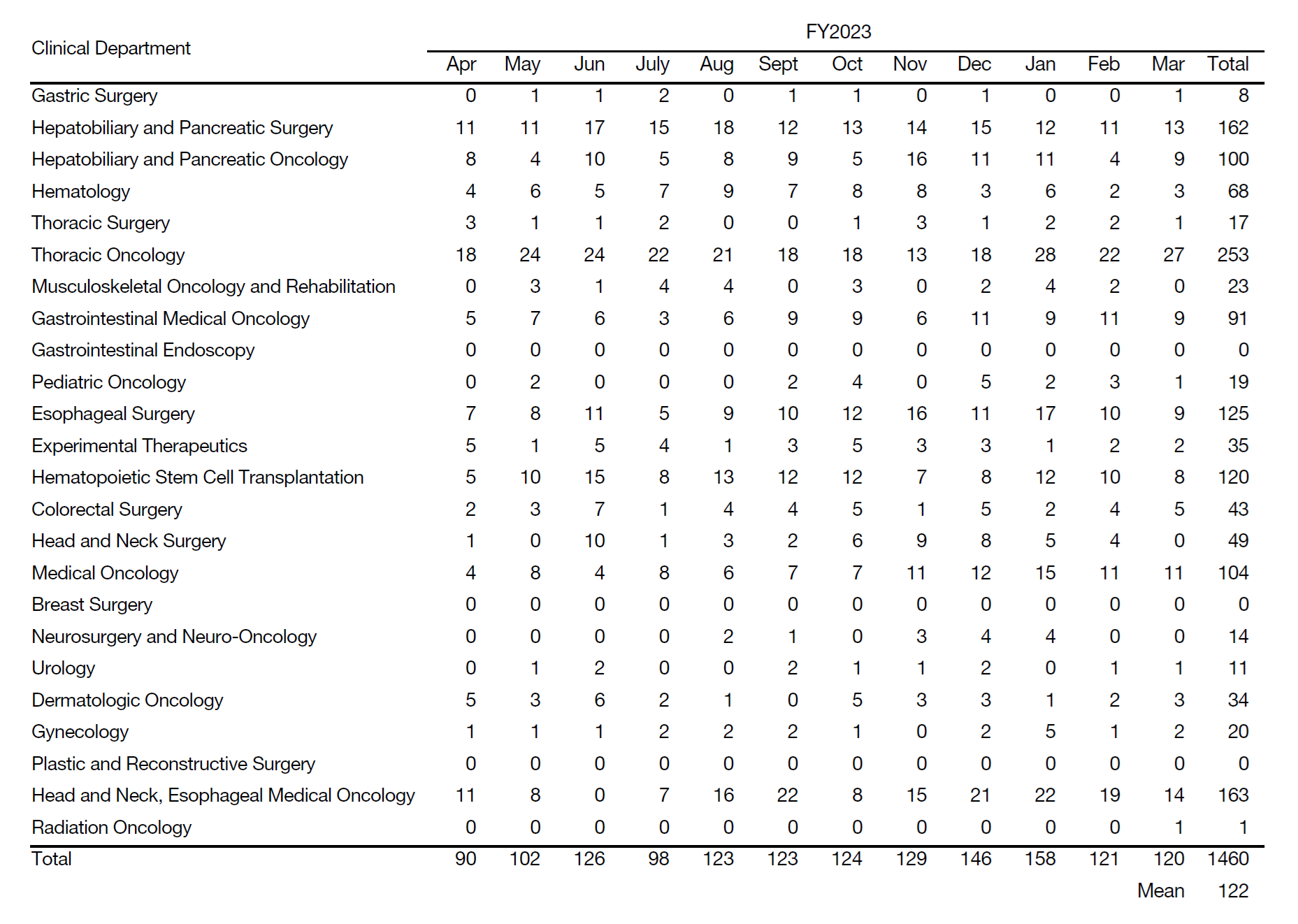Annual Report 2023
Nutrition Management Office
Hayato Tsuchiya, Aya Omae, Hiroko Abe, Minami Sato, Akiko Onozawa, Ayano Shimura, Hitomi Ikeda, Saki Takahashi, Momoko Shioda, Maho Sugawara, Ryoko Inoue, Minami Torigoe
Introduction
Nutritional counseling at the Patient Support Research and Development Center has been enriched by multi-occupational collaboration and we are able to respond promptly to sudden requests at any time.
The number of nutritional counseling sessions from April 2023 to March 2024 increased after an active response to outpatient nutritional diet guidance during the esophageal cancer perioperative period. Group nutrition dietary guidance for inpatients after colorectal cancer and EMR surgery and outpatient nutrition classes have also been well received by users.
The Nutrition Support Team (NST) had 1,460 new interventions, with a monthly average of 122 (Table 1).
Table 1. Number of NST consultations

The Nutrition Management Office provided 437,398 meals in total.
The number of nutritional counseling sessions was 3,444, and of group guidance sessions was 409.
Research Activities
We conduct research on improving the nutrition and dietary environment of cancer patients aiming to disseminate information such as proposals of menu preparations for home care patients, and hints for preventing malnutrition.
Collaborative research continues to improve the precision of meal support in accordance with changes in the meal preferences of cancer patients.
Education
We accepted trainees from 10 training schools (10 schools; 12 groups) for registered dietitians and provided practical training that was performed in cooperation with universities as part of human resource development. Usually, we have training sessions for the NST specialized therapist certification for in-hospital and out-of-hospital staff, but as in the previous year we held only in-hospital staff to prevent COVID-19 infection.
We actively participated in lectures inside and outside the hospital and conducted educational activities on cancer treatment and nutrition.
Future Prospects
In the food service, thorough hygiene control and the provision of safe meals are given top priority.
In addition, we will arrange more regional cuisine, which we have recently started offering. We will also strive to provide more varied meals than in the previous fiscal year, such as by enhancing the menu. Regarding clinical nutrition support, we will strengthen the perioperative nutrition meal guidance for elderly people, the nutrition management in the intensive care units, and the team medical care, including the meal support for chemotherapy, by going to the hospital more, and contribute to improving the QOL of the patients.
